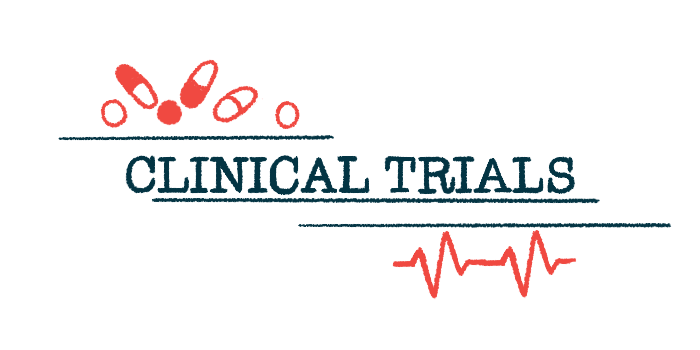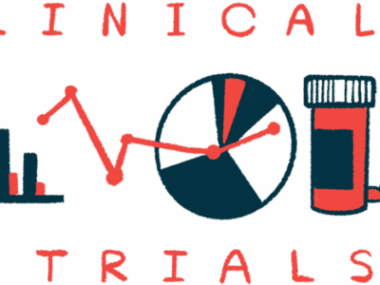Dosing begins in Phase 2 trial of ALG-000184 for hepatitis B
Study to compare oral drug candidate against standard antiviral therapy Viread
Written by |

The first participant has been dosed in a Phase 2 clinical trial testing Aligos Therapeutics’ oral treatment candidate ALG-000184 in people chronically infected with the hepatitis B virus (HBV).
Called B-SUPREME (NCT06963710), the Phase 2 study is comparing the efficacy and safety of ALG-000184 against the standard antiviral therapy tenofovir disoproxil fumarate (sold as Viread, with generics available) in up to 200 adults with chronic hepatitis B.
According to the trial webpage, the study is currently recruiting at sites in the U.S. and Canada. Aligos recently reported that regulators in other countries, including the U.K., China, Taiwan, New Zealand, and Moldova, have also cleared the trial, and that site activations are in progress.
“Dosing the first subjects in our Phase 2 B-SUPREME study is an important milestone for Aligos,” Lawrence Blatt, PhD, the chairman, president, and CEO for Aligos, said in a company press release. “We believe that ALG-000184 has first/best-in-class potential based on the exciting data seen … to date. We look forward to continuing to advance ALG-000184 for patients in need of better outcomes.”
Aligos plans to announce interim trial data in 2026 and top-line results in 2027.
‘Better therapies are needed’ to stem progression to liver failure
Hepatitis B is characterized by liver inflammation due to an HBV infection. While the infection often resolves on its own without causing significant problems, if it persists long-term, the infected person is at risk for serious liver damage and liver cancer.
Standard treatment for chronic hepatitis B involves antiviral medications that stop the virus from being able to replicate its DNA in the body. However, forms of the virus’ genetic material can still persist in the body.
“Despite available treatments for chronic HBV infection, better therapies are needed to stem the progression to [liver failure] and liver cancer,” said Nezam Afdhal, MD, the chief of gastroenterology, hepatology, and nutrition at Beth Israel Deaconess Medical Center and a professor at Harvard Medical School.
ALG-000184 is an orally administered capsid assembly modulator, meaning it works by disrupting the formation of the protective shell that surrounds a virus’ genetic material. It’s designed to lead to better HBV suppression by not only preventing viral DNA replication, but also by suppressing production of proteins that the virus needs to infect human cells.
ALG-000184 the subject of multiple studies
Data from a Phase 1 clinical trial (NCT04536337) showed that about a month of ALG-000184 treatment was well tolerated in healthy volunteers and displayed strong antiviral activity in people with chronic HBV infections.
Another part of the study evaluated the long-term antiviral activity of ALG-000184, either used alone or with the approved antiviral therapy entecavir, among chronic hepatitis B patients. Entecavir is sold as Baraclude, with generics available.
Interim 96-week data showed that ALG-000184 led to sustained reductions in HBV DNA for participants both positive and negative for HBeAg — an HBV protein that indicates the virus is actively replicating in the body — with all patients achieving levels below the lower limit of quantification. Reductions in HBV viral proteins were also observed.
In addition, among HBeAg-positive patients, the ALG-000184 plus entecavir combination had a favorable safety profile and led to more potent antiviral activity than entecavir alone.
Further Phase 1 results are expected to be presented in scientific meetings this year.
Late last year, Aligos also announced it would initiate a Phase 1 study (NCT06672900) to evaluate how ALG-000184 interacted with other drugs in healthy volunteers, while also making plans for the now underway B-SUPREME study.
The impressive antiviral activity seen in clinical trials to date provides hope for patients in need.
The Phase 2 trial is seeking adults, ages 18 to 65, with chronic hepatitis B who have either never been treated or are not currently being treated for hepatitis B, and who may be positive or negative for HBeAg.
Participants will be randomly assigned to receive ALG-000184 (300 mg) or tenofovir disoproxil fumarate (300 mg) orally once daily for 48 weeks, or nearly a year. Thereafter, all participants may enter an open-label extension period where they will receive ALG-000184 for another 48 weeks.
B-SUPREME’s main goal is to evaluate the proportion of people who achieve HBV DNA levels below the lower limit of quantification after the first 48 weeks, in both HBeAg-positive and negative populations. The therapy’s safety and pharmacological properties, as well as changes in other disease biomarkers, will be evaluated as secondary and exploratory outcome measures.
“I am pleased that therapies such as … ALG-000184 are continuing to progress,” Afdhal said. “The impressive antiviral activity seen in clinical trials to date provides hope for patients in need.”




